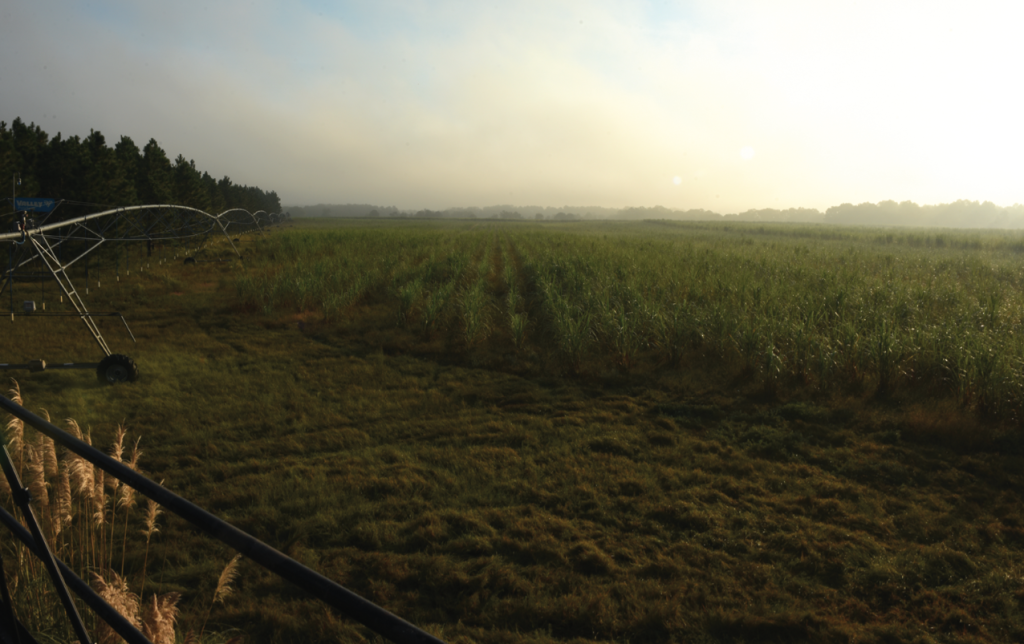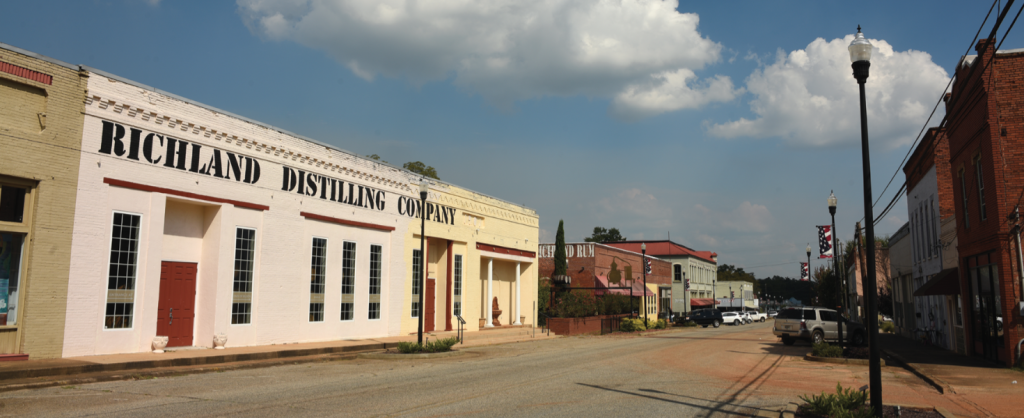Dutch Spirits on Georgia Soil
By Jim Garvey | Photos by Mark Albertin
Atlanta was good to Erik and Karin Vonk. Since moving there from the Netherlands in 1976, Erik enjoyed success in international banking and business, and Karin, his wife, received her Executive Master of Business Administration from Emory University.
The couple moved out of town to Powder Springs, Ga., in the ‘90s where 10 miles of cow pasture separated their house from Atlanta’s urban sprawl. But within a year and a half, the land was subdivided into housing tracts, strip malls, fast food outlets and parking lots. It became a two-hour drive to Hartsfield-Jackson International Airport to visit family back home in the Netherlands.
Karin missed the rural life she’d known on her family’s farm. So, she and Erik decided to look for acreage in whatever countryside was left within a couple of hours of the Atlanta airport. One weekend, they hopped in the car, slipped through the noose of highways choking metro Atlanta, and headed toward Americus, Ga.
They were zipping down a country road past stands of pines, rows of corn, peanuts, cotton, farmhouses and a roadside produce stand with a guy grinding . . . wait, what? Was that sugarcane?
Erik hit the brakes and made a U-turn.
Yes, the old man was grinding sugarcane, cooking it in a kettle, and then reducing it into syrup — an archaic process almost vanished now in this era of industrial agriculture.
The discovery stirred a seed his grandfather had planted in Erik back in Rotterdam. The old man was a fanatic about rum, with a vast collection of bottles of rum, books on rum and opinions about rum. Real rum, Erik’s grandfather insisted, should never be made from molasses. Never. Molasses, he explained, was waste left over from refining sugar, yet it was the main ingredient of most mass-produced rums. The best rum, he championed, is distilled from only the pure fermented juice of the sugarcane.
And so, as a boy, Erik dreamed someday of growing the magical plant that was so important to his grandfather. Soon after that drive to southwest Georgia, the opportunity came. In 1999, Erik and Karin bought 1,700 acres of land, a played-out cotton farm near Richland, Ga. They planned to retire there, raise a few horses for Karin and maybe grow a little cane as a hobby.
An odd thing about the farm, though, was that the water in its ponds was unusually cold. It turns out the ponds were fed by cold spring water, pure and uncontaminated, from the Appalachians hundreds of miles away.
Spring water. Sugarcane. These were the ideal ingredients for his grandfather’s legacy rum.
The Vonks experimented over the next few years, planting 17 varieties of sugarcane. Eventually, they landed on two types that thrived in south Georgia’s climate and sandy soil. They learned to press the juice from the cane, ferment it and then distill the fermented juice into rum. They got good at it. They gave it to friends as Christmas presents. The friends were mighty impressed.
It was still just a hobby 10 years later when Adolph McLendon, Richland’s mayor, visited them with a proposal one day at the farm. Or was it a challenge? “Why not expand the operation?” he asked. He proposed that the Vonks restore one of the town’s many abandoned buildings to house the rum production.
The idea seemed absurd. There was nothing downtown, just crumbling old Victorian buildings whose patrons had fled to the city or the graveyard decades ago. “Exactly!” said the mayor. “I want you downtown to help revitalize the town.” The once-gorgeous century-old buildings of downtown Richland, built in the late 1800s/early 1900s, were now boarded up, falling down and on the verge of demolition.
Although they never intended to turn their hobby into a business, the Vonks accepted the offer. Erik thinks it’s his stubborn Dutch streak needing to prove what he can do when challenged, and now, looking back, what he and Karin have done defies credibility.
It took a year and a small fortune to make the first building habitable. Their distillery and tasting room fills not one, but seven restored buildings on Richland’s main street, and the Vonks employ anywhere from 11 to 50 local workers, depending on the season. It draws 12,000 visitors annually, helping to revive the economy of this long-forgotten corner of rural Georgia.
Other communities discovered the news about Richland. The entire city council of Brunswick visited Richland to see the production firsthand. They showed the Vonks their revitalization plan for Brunswick and persuaded them to open a second distillery in their coastal city. Another challenge accepted — another distillery established. A once-abandoned JCPenney store now draws hundreds of visitors to Brunswick’s historic downtown.
Today, Richland Rum, sold in 15 states and 11 countries, is a premier brand carrying the Richland name worldwide. It has been judged among the finest rums anywhere, winning international gold medals, and named the best rum in America by Forbes Magazine in 2018. Because of its international reach, Richland was awarded the Georgia GLOBE Award in 2020.
The deep amber, single-estate, single-barrel rum is aged in charred virgin oak barrels for at least five years. “We bottle it when the rum says it’s ready,” Erik explained. There’s no rush. Unlike cheaper mass-market rums, Richland uses no accelerant, no sweeteners, no color, no preservatives and no phony backstories about Caribbean pirates. “Our rum is authentic and pure, just sugarcane grown in Georgia dirt with Georgia sun and Georgia rain.”
A miraculous alchemy transforms these simple ingredients into an elixir of complex flavors like those of cognac and single-malt whiskey. No small part of that alchemy, though, is the mixture of nostalgia, serendipity, vision and just plain Dutch stubbornness that reflects a couple who used a family rum recipe to bring a town back to life.




